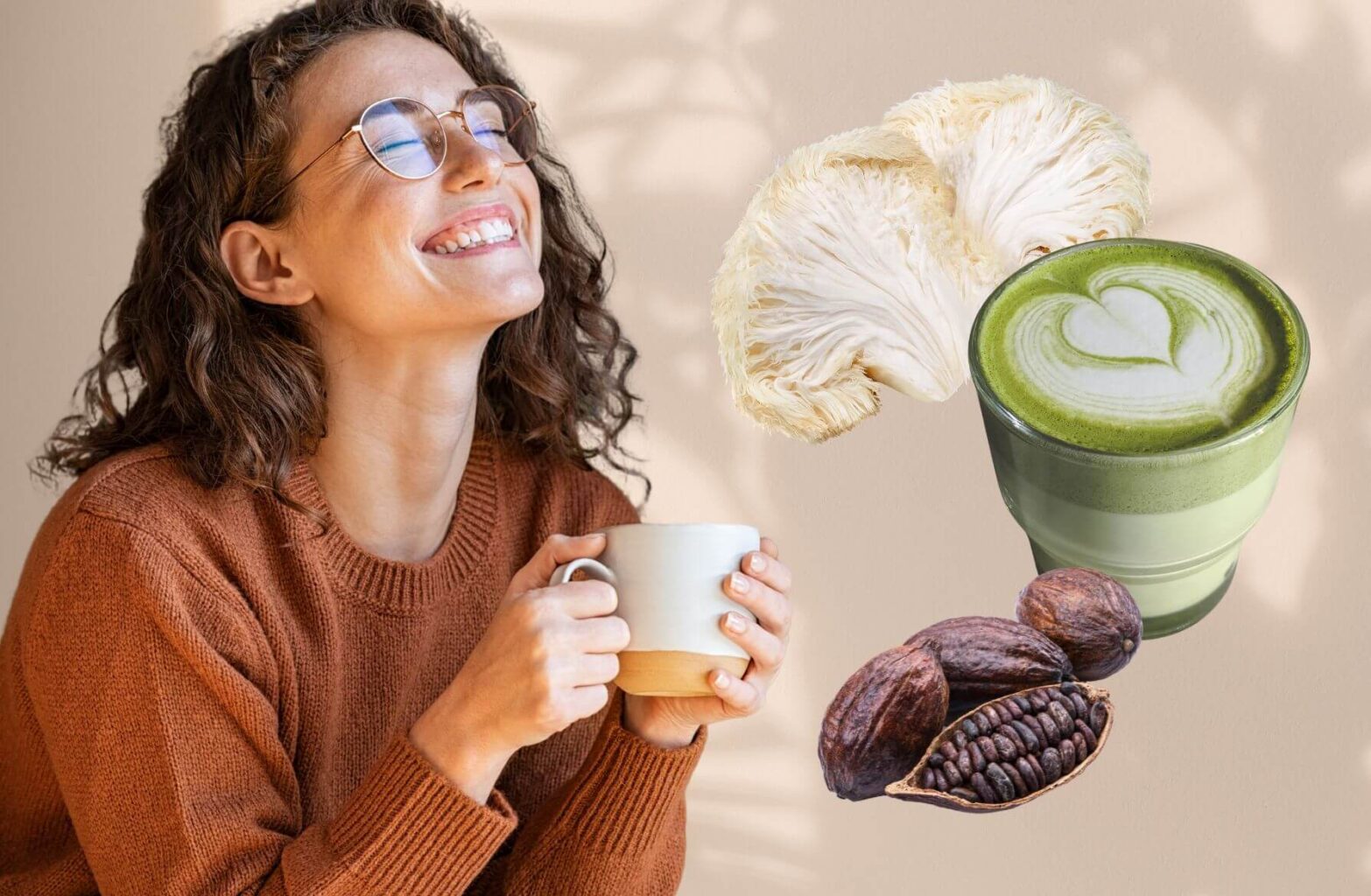Coffee is the go-to morning beverage for many women. In fact, people in the UK drink an average of one million cups of caffeinated beverages daily. This means that one person consumes around 528 cups of coffee per year or 1.5 cups daily. Despite being a coffee-addicted nation, two in five coffee drinkers in the UK are searching for ways to reduce their caffeine intake, according to research. If you’re looking for an effective energy-boosting coffee replacement or a natural coffee substitute, we’ve rounded up the best coffee alternatives for women and their health benefits.
Coffee Alternatives: Exploring Healthy Substitutes
Coffee has long been a beloved beverage worldwide, cherished for its rich flavour and invigorating effects. However, for some individuals, excessive coffee consumption can lead to health concerns such as disrupted sleep, increased anxiety, and dehydration. Fortunately, there’s a wide array of coffee alternatives available that offer similar satisfaction without the drawbacks of excessive caffeine intake.
Excessive Coffee Consumption and Health Concerns
Caffeine Effects on Health
Caffeine, the primary stimulant in coffee, can have both positive and negative effects on health. While moderate consumption is generally safe, excessive intake can lead to insomnia, nervousness, and a rapid heart rate.
In recent years, caffeine consumption has been linked to a host of health problems, such as high blood pressure, digestive issues, and even caffeine dependency. Individuals who are sensitive to caffeine or who wish to reduce their intake may benefit from exploring coffee alternatives.
Benefits of Reducing Coffee Intake
Improved Sleep Quality
One of the most significant benefits of reducing coffee consumption is improved sleep quality. By limiting caffeine intake, individuals may find it easier to fall asleep and experience deeper, more restful sleep patterns.
Reduced Anxiety and Jitteriness
Having too much caffeine can exacerbate feelings of anxiety and jitteriness in some individuals. Switching to coffee alternative beverages with lower caffeine content or none at all can help alleviate these symptoms and promote a greater sense of calmness.
Better Hydration Levels
Unlike coffee, which can act as a diuretic and contribute to dehydration, many coffee alternatives offer hydration benefits. Herbal teas, for example, are not only caffeine-free but also provide essential hydration to support overall well-being.
Best Coffee Alternatives
Lion’s Mane Mushrooms: A Natural Energy Booster
Traditional Chinese medicine has long used lion’s mane mushrooms, which have a distinctive white and fluffy appearance. Contemporary research continues to unveil their potential benefits, including blood sugar regulation, heart health improvement, and hypertension reduction. Additionally, these mushrooms are renowned for their energy-boosting properties, making them an ideal substitute for coffee. Cooked, brewed as a drink, or taken as a supplement, lion’s mane mushrooms offer a versatile solution for fatigue during the day.
Matcha Tea: A Sensible Caffeine Substitute
Matcha tea is a finely powdered green tea with earthy undertones that offers a wide range of health benefits. Packed with polyphenols and chlorophyll, matcha tea shields the body against diseases while supporting cognitive function. Matcha tea offers sustained energy without the abrupt crashes associated with caffeine consumption despite containing around 50mg of caffeine per serving, significantly lower than coffee. So if you want to reduce caffeine intake gradually, this is a sensible substitute.
Peppermint and Ginger Tea: Herbal Coffee Alternatives
Energy levels and cognitive functions are enhanced by herbal teas, which do not contain caffeine. Ginger tea promotes sustained energy throughout the day by facilitating oxygen circulation, while peppermint tea aids digestion. As a result, brewing herbal tea can serve as a refreshing morning ritual, awakening one’s senses and preparing one for the day.
Exploring Ashwagandha
From stress relief to enhanced cognitive function, Ashwagandha, also known as Indian ginseng or winter cherry, provides a host of health benefits. In addition to sharpening focus, improving memory, and boosting attention spans, ashwagandha also mirrors several of the benefits of coffee without the drawbacks of caffeine dependence. Ashwagandha emerges as a promising alternative to coffee thanks to its versatile applications.
The Power of Cocoa Beans
There is more to cocoa beans than just chocolate and flavour. When dried and fermented, they serve as potent remedies for heart disease, hypertension, and inflammation. In particular, cocoa beans contain theobromine, a natural stimulant that gives a gradual energy boost similar to caffeine but without the addiction. This makes cocoa beans an attractive alternative for individuals seeking to reduce their coffee consumption.





